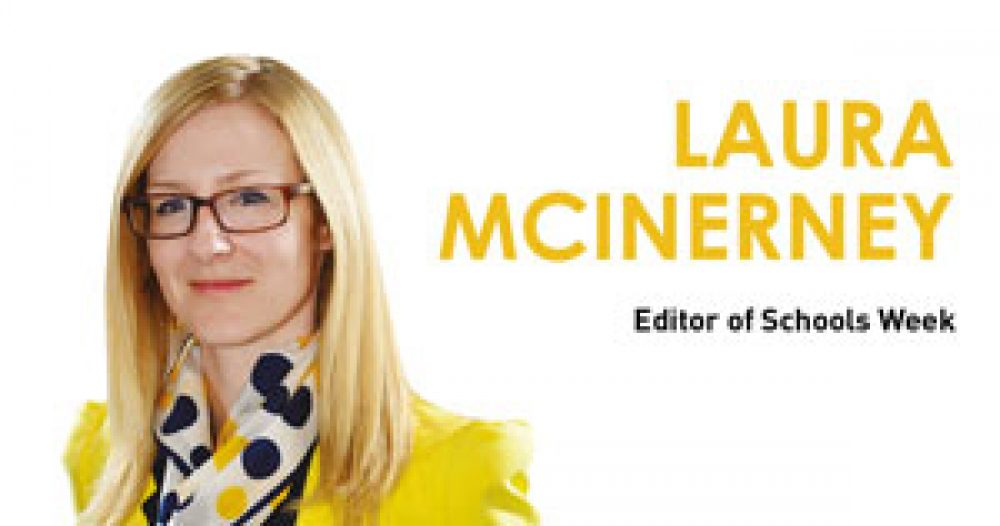If you’re looking for good assembly material, it’s worth showing pupils the greatest music video of the Nineties: Oasis’s Stand By Me.
It shows a series of unconnected events over its five-minute riff. We see people stealing televisions; twin sisters pushing one another; a woman being mugged; a child being kidnapped.
Or, at least, that’s what we think we are seeing.
For the first three minutes, these events are interspliced, randomly, in different orders, with shots of a motorcyclist.
What you don’t see until the last minute is the entire story, told in the correct order, and at an angle where you learn that the motorcyclist is actually driving through each of these events.
Once you see the cyclist you realise the child isn’t being kidnapped: she is being moved out of harm’s way. The mugger isn’t attacking the woman: he’s saving her from being run over. The twin shoving her sister away is pushing her away from the bike. And the people stealing the televisions? They are removing debris from the cyclist’s body after he’s flown through a shop window, causing televisions to fall on top of him.
It’s a triumphant metaphor of the way truth is relative to our vantage point. (All set to a searing guitar track and beautiful lyrics. Seriously. It’s the best video.)
What is the real story about nationality data?
The video came back to mind this week when the BBC’s political editor, Laura Kuenssberg, revealed she had seen letters showing the Department for Education’s recent decision to collect information about children’s nationality was not about targeting resources, as Schools Week had been told, but was the result of a compromise reached to try and to curb a plan by the Home Office to “deprioritise” the children of illegal immigrants and deny them school places.
A problem of journalism is that we are almost always working with the same information a viewer has in the Stand By Me video
For six months we have reported on the nationality data policy precisely because the way information had come to us made us believe something more was going on. A problem of journalism is that we are almost always working with the same information a viewer has in the Stand By Me video.
We get different snippets, fed into us at random times, and somehow we have to make sense of it.
Our problem with the immigration data story was that we couldn’t see the motorcyclist which, in this laboured metaphor, was the letter Kuenssberg eventually procured. Even though we suspected something else was under the nationality data collection, and we knew everything else would be seen in a different light if it was reported, we didn’t have the smoking gun.
So we reported what we had with all the seriousness that we could. When schools were demanding passports and sending out texts that would frighten away immigrant children, we made it front-page news. And since we have been told that DfE has created an agreement with the Home Office not to pass the information over, Freddie Whittaker, our reporter, has been relentless in asking to see it, to the point that he has now asked the Information Commissioner to intervene.
Of course, it is still possible for another twist to come. I still believe, in the optimistic recesses of my heart (yes, it still exists), that the DfE are the good guys in this. I believe they stood up to the Home Office and that there really is an agreement. I cannot wait to write that story. But first, we need to see it. Otherwise, we are still in the part of the video where all we have in front of us are people who look suspiciously like muggers and kidnappers, even if their motives are pure.
Who should we believe on grammar schools?
Having faced down the immigration issue, we then stumbled upon another issue of conflicting information: this time about grammar schools.
A small enquiry about the cost of a report used by the prime minister to justify her plans to allow new grammar schools led to us finding out that the line she read out in parliament as coming from the report, isn’t actually in the report. It is simply the opinion of a person quoted in a press release.
This is mildly embarrassing for the government. Mistakes are annoying, but not enormously so. But it highlights a sloppiness around evidence in the grammar debate that’s getting worse and worse.
As we reported online earlier this week, the DfE’s own report into the PISA results states that selection makes no difference to achievement. If anything, it makes things worse. And yet, on the day the results came out, schools minister Nick Gibb was trumpeting how the data showed more selective schools were needed, even though it was the exact opposite of what the data said.
I guess some people cannot handle the truth even when shown the full video: motorcycle and all.



It is great assembly material and I had not seen the video before. Will definitely use it. Thanks Laura.